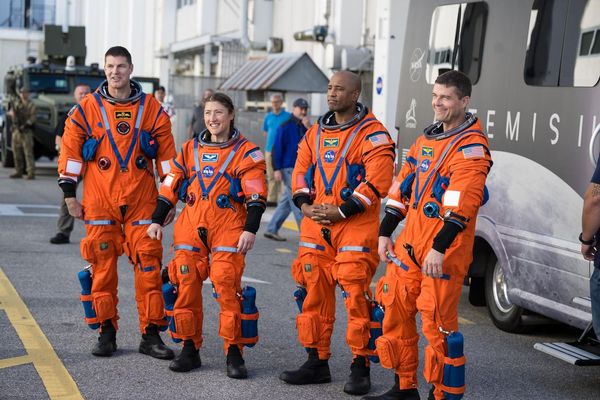
How does a country descend into civil war? It’s easier than you may think. At various points between 1969 and 1998, it nearly happened in Britain. There have been many TV tellings of the Troubles: good ones too, offering political and historical analysis of the seemingly intractable sectarian conflict that scarred late 20th-century Northern Ireland. James Bluemel’s remarkable five-part series was the first to present an emotional history; a trajectory of events that can be understood via the feelings of the people involved. This was the most important TV series of the year: a road map of how conflict begins and, crucially, how it can end. Parts of it will lodge in your brain like shrapnel.
Through Bluemel’s gentle but persistent probing, the process of radicalisation was laid out with horrible clarity. We began with footage of mid-60s Northern Ireland: people having fun at holiday camps; shopping, sporting recognisable, era-specific haircuts and fashions. The rioting that arose in Catholic communities out of a series of marches in protest at Northern Ireland’s unfair voting system, was viewed simply as “a good craic” by some participants.
But as old wounds were reopened, things escalated. Via Bloody Friday and Bloody Sunday; via a recruitment bonanza for the IRA, and loyalists responding in kind and joining organisations such as the UDA, violence reached a sustained crescendo. The aberrant became everyday; hatred and fear became normalised. A Saturday night trip to the pub started to feel risky. The streets emptied of life.
It is clear that these people now want to talk. They’ve had experiences that are a lot to bottle up. There are startling recollections from paramilitaries on both sides. Ricky O’Rawe was a member of the IRA; he served time in the Maze prison and participated in the infamous “dirty protests” of the late 70s. His wife Bernadette recalls her horror at kissing her shit-scented husband during visits – but explains that she had no choice as he was expected to orally pass notes, via her, to the IRA’s high command.
Former loyalist fighter James Greer also talks lucidly of the violence he perpetrated. He is still visibly traumatised. “I hate to ignore the things that make me uncomfortable,” he says. “Because they’re important.” That is the nub of the series. These stories are frequently horrendous but they need preserving – not least because these men reversed out of their situations. After serving prison time, Greer became a social worker, dedicating the rest of his life to peace-building. His sectarianism disappeared, he says, “like snow melting”. At this point Bluemel pauses so Greer can eat a biscuit. It feels like a necessary release of tension.
To look at O’Rawe and Greer now is to see two amiable, engaging men in late middle age with extraordinary stories to tell. You can imagine them getting on fine over a pint. You are also forced to imagine them shooting at each other. This was the show’s real revelation – something obvious but still extraordinary to see played out. “The paramilitaries didn’t land from an alien planet,” said one woman. “They were brothers, they were uncles, they were fathers.”
Some people were brave enough to simply refuse to pick a side. There are the punks Greg and Yvonne: they met at the Harp Bar, where gigs were promoted by the great Terri Hooley, who also opened a record shop at the height of the conflict. “If my grandchildren asked me what I did during the Troubles,” says Hooley, “I wanted to be able to say ‘I partied a lot, I drank, I did drugs and I had a good time. And I didn’t kill anybody’”. Instead he created an oasis; a noisy sanctuary in the eye of the storm.
As remarkable as these stories are, the concluding tales of redemption and reconciliation were more striking still. Richard Moore has made friends with Charles Innes, a British soldier who blinded him with a rubber bullet when he was 10. Alan McBride voted in favour of the 1998 Good Friday agreement which brought the conflict to an end, even though it would mean the release of Sean Kelly, the man who murdered his wife. “I’ve seen him several times,” says McBride. “The first time it happened was when the new Asda opened.”
Since it was broadcast, this series has become horribly timely. Not only in the context of the horrendous, apparently insoluble conflict in Israel and Gaza but also thanks to the UK government’s ongoing flirtation with the idea of leaving the European Convention on Human Rights, which underpins the Good Friday agreement. Once Upon a Time in Northern Ireland is simultaneously a beacon and a warning. Peace can emerge from the most hopeless situations. Take it for granted at your peril.







